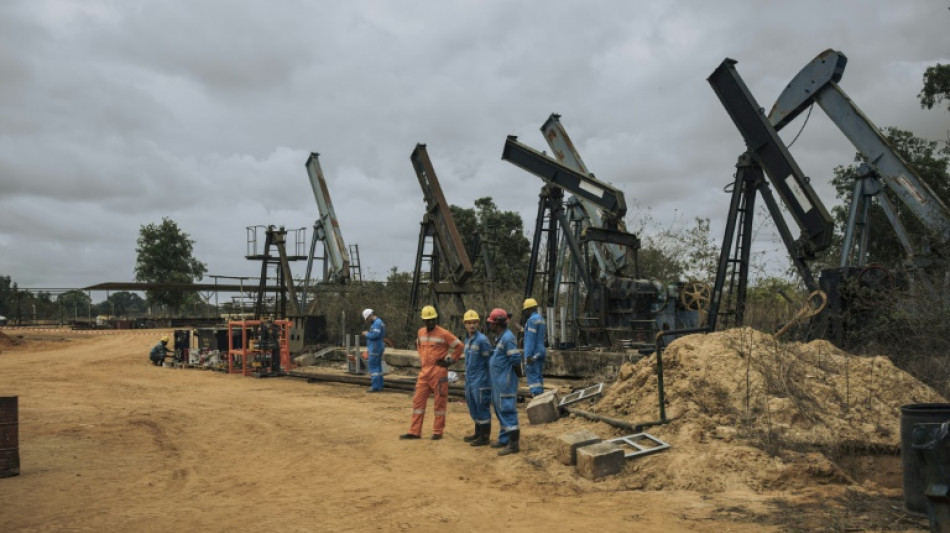
-
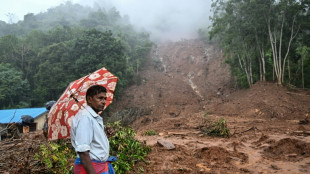 Sri Lanka cyclone caused $4.1 bn damage: World Bank
Sri Lanka cyclone caused $4.1 bn damage: World Bank
-
Billionaire Ellison offers personal guarantee for son's bid for Warner Bros

-
 Tech stocks lead Wall Street higher, gold hits fresh record
Tech stocks lead Wall Street higher, gold hits fresh record
-
Telefonica to shed around 5,500 jobs in Spain
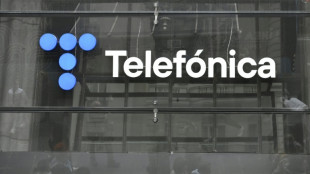
-
 McCullum wants to stay as England coach despite Ashes drubbing
McCullum wants to stay as England coach despite Ashes drubbing
-
EU slams China dairy duties as 'unjustified'
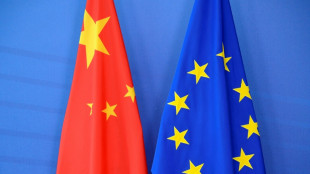
-
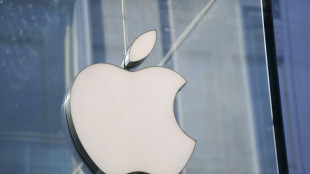 Italy fines Apple nearly 100 mn euros over app privacy feature
Italy fines Apple nearly 100 mn euros over app privacy feature
-
America's Cup switches to two-year cycle
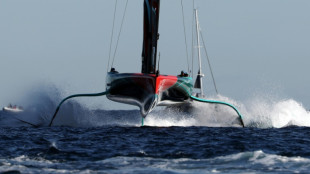
-
 Jesus could start for Arsenal in League Cup, says Arteta
Jesus could start for Arsenal in League Cup, says Arteta
-
EU to probe Czech aid for two nuclear units
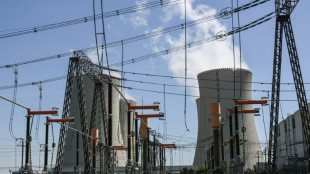
-
 Strauss says sacking Stokes and McCullum will not solve England's Ashes woes
Strauss says sacking Stokes and McCullum will not solve England's Ashes woes
-
Noel takes narrow lead after Alta Badia slalom first run

-
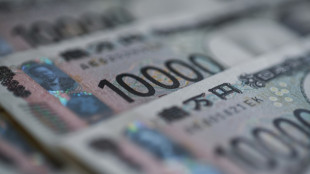 Stocks diverge as rate hopes rise, AI fears ease
Stocks diverge as rate hopes rise, AI fears ease
-
Man City players face Christmas weigh-in as Guardiola issues 'fatty' warning
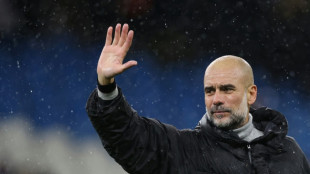
-
 German Christmas markets hit by flood of fake news
German Christmas markets hit by flood of fake news
-
Liverpool fear Isak has broken leg: reports
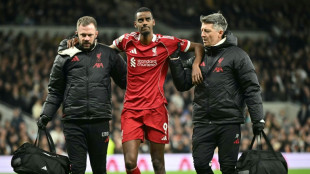
-
 West Indies captain says he 'let the team down' in New Zealand Tests
West Indies captain says he 'let the team down' in New Zealand Tests
-
Thailand says Cambodia agrees to border talks after ASEAN meet
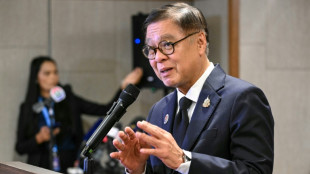
-
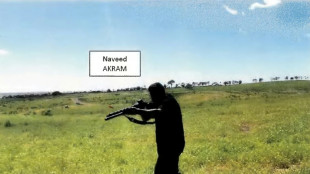 Alleged Bondi shooters conducted 'tactical' training in countryside, Australian police say
Alleged Bondi shooters conducted 'tactical' training in countryside, Australian police say
-
Swiss court to hear landmark climate case against cement giant
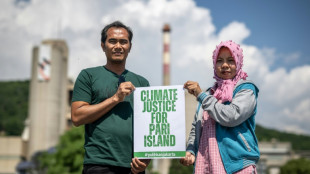
-
 Knicks' Brunson scores 47, Bulls edge Hawks epic
Knicks' Brunson scores 47, Bulls edge Hawks epic
-
Global nuclear arms control under pressure in 2026
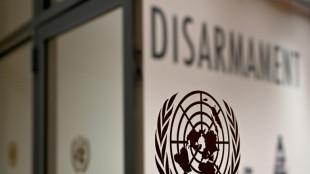
-
 Asian markets rally with Wall St as rate hopes rise, AI fears ease
Asian markets rally with Wall St as rate hopes rise, AI fears ease
-
Jailed Malaysian ex-PM Najib loses bid for house arrest

-
 Banned film exposes Hong Kong's censorship trend, director says
Banned film exposes Hong Kong's censorship trend, director says
-
Duffy, Patel force West Indies collapse as NZ close in on Test series win

-
 Australian state pushes tough gun laws, 'terror symbols' ban after shooting
Australian state pushes tough gun laws, 'terror symbols' ban after shooting
-
A night out on the town during Nigeria's 'Detty December'

-
 US in 'pursuit' of third oil tanker in Caribbean: official
US in 'pursuit' of third oil tanker in Caribbean: official
-
CO2 soon to be buried under North Sea oil platform

-
 Steelers edge Lions as Bears, 49ers reach playoffs
Steelers edge Lions as Bears, 49ers reach playoffs
-
India's Bollywood counts costs as star fees squeeze profits

-
 McCullum admits errors in Ashes preparations as England look to salvage pride
McCullum admits errors in Ashes preparations as England look to salvage pride
-
Pets, pedis and peppermints: When the diva is a donkey

-
 'A den of bandits': Rwanda closes thousands of evangelical churches
'A den of bandits': Rwanda closes thousands of evangelical churches
-
Southeast Asia bloc meets to press Thailand, Cambodia on truce

-
 As US battles China on AI, some companies choose Chinese
As US battles China on AI, some companies choose Chinese
-
AI resurrections of dead celebrities amuse and rankle

-
 Parallel Society Reveals Lineup for 2026 Lisbon Edition - A Cross-Genre Mashup of Cultural and Tech Pioneers
Parallel Society Reveals Lineup for 2026 Lisbon Edition - A Cross-Genre Mashup of Cultural and Tech Pioneers
-
Ai4 2026 Announces Dynamic Keynote Panel Featuring Geoffrey Hinton, Fei‑Fei Li & Andrew Ng

-
 NESR Becomes First Oilfield Services Company to Commission Original Artwork Created from Recycled Produced Water
NESR Becomes First Oilfield Services Company to Commission Original Artwork Created from Recycled Produced Water
-
SMX Strikes Joint Initiative with FinGo & Bougainville Refinery Ltd to Deliver Verifiable Identification for Trillion Dollar Gold Market

-
 Blue Gold and Trust Stamp Execute Strategic LOI to Develop Biometric, Passwordless Wallet Infrastructure for Gold-Backed Digital Assets
Blue Gold and Trust Stamp Execute Strategic LOI to Develop Biometric, Passwordless Wallet Infrastructure for Gold-Backed Digital Assets
-
SK tes Announces Grand Opening of New Shannon Facility, Marking a Milestone for Sustainable Technology in Ireland

-
 FDA Officially Confirms Kava is a Food Under Federal Law
FDA Officially Confirms Kava is a Food Under Federal Law
-
Greenliant NVMe NANDrive(TM) SSDs Selected for Major Industrial, Aerospace and Mission Critical Programs

-
 World Renowned Law Firm Grant & Eisenhofer Files Class Action Lawsuit Against Canadian Banks CIBC and RBC Alleging Illegal Stock Market Manipulation of Quantum BioPharma Shares
World Renowned Law Firm Grant & Eisenhofer Files Class Action Lawsuit Against Canadian Banks CIBC and RBC Alleging Illegal Stock Market Manipulation of Quantum BioPharma Shares
-
NextTrip Announces Pricing of Private Placement Financing of $3 Million
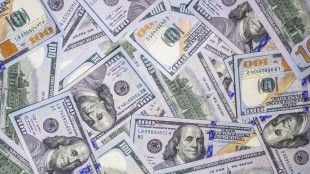
-
 Namibia Critical Metals Inc. Receives Proceeds of $1,154,762 from Exercise of Warrants
Namibia Critical Metals Inc. Receives Proceeds of $1,154,762 from Exercise of Warrants
-
Shareholders Updates


After Davos, a race for money to stop climate change
US climate envoy John Kerry bluntly summed up in one word what the planet needs to avoid a global warming catastrophe at the World Economic Forum this week: money.
The annual meeting of the global elite in the Swiss Alpine resort of Davos was a chance for top government officials, CEOs, academics and campaigners to debate how to tackle the climate crisis.
The bill is monumental: Kerry and others warned that trillions of dollars were needed to speed up the world's efforts to reach net-zero carbon emissions by 2050 and limit warming to 1.5 degrees Celsius.
But the week-long forum exposed fault lines over how to meet those targets at a time when the world faces a costly war in Ukraine, an economic downturn, soaring inflation and a cost-of-living crisis.
The US government is pouring $369 billion dollars into its green energy transition through tax incentives and subsidies for electric cars and other technology under its landmark Inflation Reduction Act (IRA).
Kerry warned however that public funds alone were not enough, as he used his Davos appearance to press his case that the private sector has a major role to play -- if firms can be shown there is money to be made.
The former US secretary of state admitted that he sounded like the corporate raider Gordon Gekko from the film "Wall Street" when he said earlier this week that "money, money, money, money, money, money, money" was needed to meet the 1.5C target.
"The magic that we need is to unleash those trillions of dollars that are looking for good investments, but they're looking for bankable investments," Kerry said.
But at the same panel, Ecuadoran climate activist Helena Gualinga said profit was being placed above the health of the planet.
"When I hear a lot of these conversations I think it's very business first, and then we'll deal with climate and then we'll deal with biodiversity loss," she said. "That needs to be reversed."
- US-EU spat -
Other disagreements returned to the fore in Davos.
While many praised US President Joe Biden's IRA programme as a game-changer for the climate crisis, Europeans continued to denounce what they describe as discriminatory subsidies favouring US businesses.
The two sides held talks in Davos as they seek to find a compromise.
"We're friends," Kerry told AFP. "We need to work together and I think there's a lot of listening going on and discussions to address those things that are concerns."
European industrialists said the EU should step up its game and respond with its own version of the IRA if it wants to remain competitive.
"Yes, we are going to the US. We are taking the cheque from IRA, and fair enough," Ilham Kadri, CEO of Belgian chemicals giant Solvay, said at an event hosted by Belgian Prime Minister Alexander De Croo.
European Union chief Ursula von der Leyen announced plans in Davos for a special fund and a "Net Zero Industry Act" to defend Europe's industrial base from US and Chinese industrial subsidies.
- Western 'hypocrisy' -
IMF chief Kristalina Georgieva voiced concerns that Western efforts to use public money to step up private investment could be detrimental to developing nations, which are the most exposed to the effects of climate change.
"If we are to strive to get the industrialised world clean and we don't think about the emerging markets, we are all cooked," she said Friday.
Wealthy nations have already fallen behind on their pledges to deliver $100 billion per year to help developing countries green their economies and build resilience against future impacts of climate change.
Climate financing will be among the core issues to be discussed at the COP28 summit hosted by the United Arab Emirates later this year.
The president of the Democratic Republic of Congo, Felix Tshisekedi, slammed the "hypocrisy" of criticising his country for wanting to exploit fossil fuels for its development while wealthy polluters have failed to provide the money promised to help its energy transition.
"I think this money would allow us to get the technology faster if everyone kept their word," Tshisekedi said.
D.Cunningha--AMWN